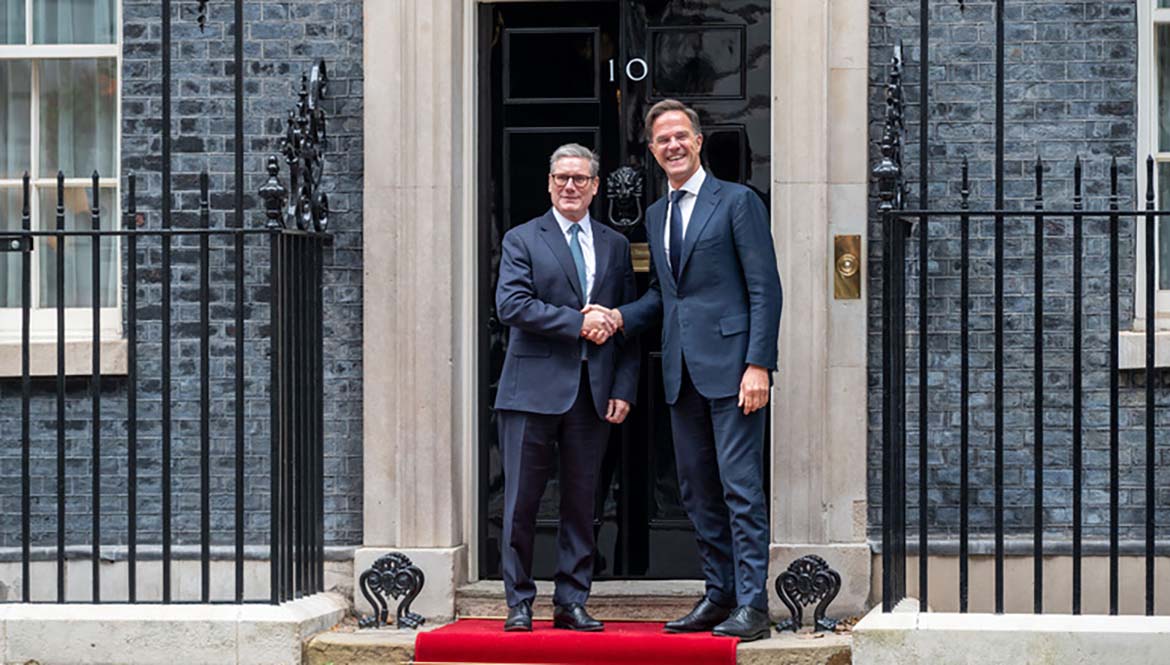NATO’s recent activities reflect its multi-faceted approach to modern security challenges, from supporting Ukraine against Russia to bolstering nuclear and space deterrence. With its evolving strategies and global partnerships, NATO continues to adapt to a changing world where perceived threats are increasingly interconnected and complex.
In recent weeks, NATO has intensified its focus on several crucial security concerns, with significant developments on multiple fronts.
A key event was NATO Secretary General Mark Rutte’s visit to London on October 10, 2024, where he met with prominent leaders, including UK Prime Minister Keir Starmer and Ukrainian President Volodymyr Zelenskyy.
These meetings were centered around NATO’s continued support for Ukraine. This conflict has reshaped the security landscape in Europe and prompted significant responses from NATO.
During the talks, Rutte highlighted the United Kingdom’s critical role within the NATO alliance, particularly in leading efforts to support Ukraine both militarily and politically.
The meeting underscored NATO’s unified stance in confronting Russian aggression, and discussions delved into the strategies required to maintain and enhance this support.
Rutte reaffirmed NATO’s collective commitment to Ukraine’s sovereignty and territorial integrity, while also exploring future steps to assist the country in its fight for survival.
Steadfast Noon
Rutte’s visit coincided with the start of NATO’s annual nuclear deterrence exercise, Steadfast Noon. This exercise is part of the alliance’s efforts to maintain readiness and ensure that NATO’s nuclear capabilities remain credible and effective.
Steadfast Noon, while not involving live weapons, tests the procedures and logistics of nuclear deterrence, reinforcing NATO’s commitment to protecting its members from existential threats. The exercise also signals adversaries that NATO is fully prepared to defend its allies against any aggression, including nuclear threats.
Space war
Another significant focus for NATO is space security. The alliance has recently been conducting in-depth discussions on enhancing the protection of commercial and military assets in space.
As space becomes an increasingly vital domain for modern warfare and communication, NATO recognizes the importance of safeguarding its interests beyond the Earth’s atmosphere.
The discussions have explored countering growing threats, such as anti-satellite weapons and cyberattacks targeting space-based infrastructure.
By bolstering its space defense strategies, NATO aims to protect its member states from the potential disruption of critical systems that could undermine national security.
Beyond these immediate concerns, NATO also addresses broader geopolitical challenges, including its relationship with China and the Indo-Pacific region.
The alliance is increasingly aware of the global nature of security threats, and China’s rise as a global power has prompted NATO to expand its focus beyond its traditional theater of operations.
Recent NATO summits have included discussions on the implications of China’s growing influence and military modernization, signaling a shift in NATO’s strategic priorities to consider challenges beyond Europe.
NATO expansion into the Indo-Pacific
Furthermore, NATO actively enhances its partnerships with non-member countries, particularly in the Indo-Pacific. These partnerships aim to build security cooperation and ensure that NATO is prepared to respond to threats in this rapidly evolving region.
By fostering closer ties with countries like Japan, South Korea, and Australia, NATO is positioning itself as a global security player capable of addressing challenges on multiple fronts.
Source: NATO



